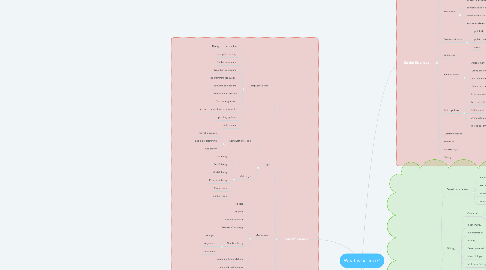
1. Formal Sciences
1.1. Computer sciences
1.1.1. Theory of computation
1.1.2. computer security
1.1.3. Parallel computing
1.1.4. Quantum computing
1.1.5. Programming languages
1.1.6. Software engineering
1.1.7. Computer and society
1.1.8. Computer graphics
1.1.9. computer communications -networks
1.1.10. operating systems
1.1.11. data system
1.2. Logic
1.2.1. Computational logic
1.2.1.1. formal language
1.2.1.2. Logic programming
1.2.1.3. Type theory
1.2.2. Math logic
1.2.2.1. Set theory
1.2.2.2. Proof theory
1.2.2.3. Model theory
1.2.2.4. Recursion theory
1.2.2.5. Modal logic
1.2.2.6. Intuition logic
1.3. Mathematics
1.3.1. Algebra
1.3.2. Analysis
1.3.3. Probability theory
1.3.4. Geometry/ topology
1.3.5. Number theory
1.3.5.1. Analytic
1.3.5.2. Algebraic
1.3.5.3. Geometric
1.3.6. Logic/ math foundations
1.3.7. Applied mathematics
1.4. Statistics
1.4.1. Computational statistics
1.4.2. data mining
1.4.3. regression
1.4.4. simulation
1.5. Systems sciences
1.5.1. Complex theory
1.5.2. chaos theory
1.5.3. cybernetics
1.5.4. control theory
1.5.5. operations research
1.5.6. systems psychology
1.5.7. systems engineering
1.5.8. system ecology
1.5.9. systems dynamics
1.5.10. systems theory
1.5.10.1. World system theory
1.5.10.2. biochemical system theory
1.5.10.3. developmental system theory
1.5.10.4. ecological system theory
1.5.10.5. general system theory
1.5.10.6. Living system theory
1.5.10.7. mathematical system theory
1.6. philosophical Logic
2. Humanities & Arts
3. Social Sciences
3.1. Economics
3.1.1. human development theory
3.1.2. Labour economics
3.1.3. Microeconomics
3.1.4. Resource economics
3.2. Sociology
3.2.1. collective behavior
3.2.2. computational sociology
3.2.3. environmental sociology
3.2.4. economic development
3.3. Political sciences
3.3.1. political philosophy
3.3.2. public policy
3.3.3. civics
3.4. Linguistics
3.5. Ethnic Studies
3.5.1. Asian american studies
3.5.2. Latino american studies
3.5.3. Native american studies
3.5.4. African studies
3.6. Anthropology
3.6.1. Historical anthropology
3.6.2. Medical anthropology
3.6.3. Cultural anthropology
3.6.4. Archaeological
3.6.5. Biological anthropology
3.7. Communications
3.8. Semiotics
3.9. Archaeology
3.10. History
4. Natural Sciences
4.1. Behavioral sciences
4.1.1. neural-decision sciences
4.1.2. social-communication sciences
4.1.3. stress/ depression/
4.1.4. values/attitude
4.2. Biology
4.2.1. Anatomy
4.2.1.1. comparative
4.2.1.2. Human anatomy
4.2.2. Biochemistry
4.2.3. Bioinformatics
4.2.4. Botany
4.2.5. Developmental biology
4.2.6. Microbiology
4.2.7. Molecular Biology
4.2.8. Aerobiology
4.2.9. cell biology
4.2.10. chronobiology
4.3. Chemistry
4.3.1. Computational chemistry
4.3.2. Electron chemistry
4.3.3. Inorganic chemistry
4.3.4. Organic chemistry
4.3.5. Analytical chemistry
4.3.6. Quantum chemistry
4.3.7. chem-informatics
4.3.8. theoretical chemistry
4.3.9. physical chemistry
4.4. Physics
4.4.1. Acoustics
4.4.2. Astrophysics
4.4.3. optical physics
4.4.4. Atomic/ molecular
4.4.5. Biophysics
4.4.6. Polymer chemistry
4.4.7. Spectroscopy
4.5. Earth sciences
4.5.1. Environmental sciences
4.5.2. Geodesy
4.5.3. geography
4.5.4. geology
4.5.5. Geochemistry
4.5.6. Geomorphology
4.5.7. Paleontology
4.5.8. Oceanography
4.5.9. Meteorology
4.6. Astronomy
4.6.1. Astrobiology
4.6.2. Astrophysics
4.6.2.1. Gravitational astronomy
4.6.2.2. numerical simulation
4.6.2.3. physical cosmology
4.6.2.4. observational astronomy
